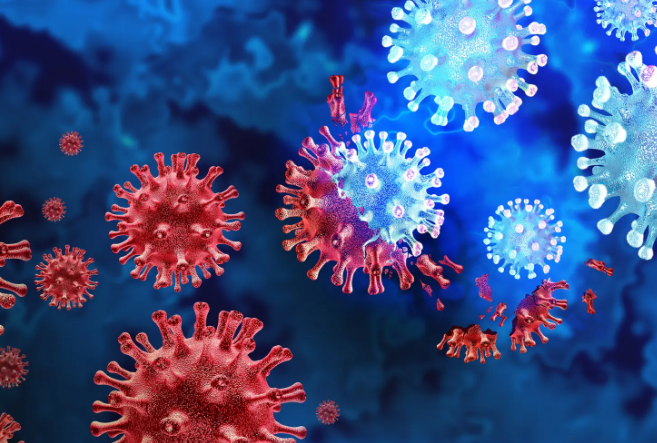Health officials are raising concerns over a new COVID-19 variant, NB.1.8.1, which has become the dominant strain in China and is beginning to appear in several U.S. states. The variant, part of the Omicron family, has been designated a “variant under monitoring” by the World Health Organization.
NB.1.8.1 was first detected in late April, according to data from the GISAID global virus database, with cases identified in travelers from China, Japan, South Korea, France, Spain, Taiwan, Thailand, and the Netherlands. Since then, it has contributed to a rise in hospitalizations and emergency room visits in China.
In the United States, the Centers for Disease Control and Prevention (CDC) picked up initial cases through its airport surveillance program, which randomly tests arriving international travelers. Cases have since been reported in California, Hawaii, New York, Ohio, Rhode Island, Virginia, and Washington. However, the numbers remain low and the variant has not yet appeared on the CDC’s main COVID-19 variant tracking dashboard.
Although NB.1.8.1 is spreading, public health experts say that existing vaccines—especially those developed for earlier Omicron variants—should still provide protection against severe illness. The U.S. Food and Drug Administration (FDA)’s vaccine advisory panel recently reviewed data on new vaccine candidates from Pfizer and Moderna aimed at LP.8.1, a related strain that now accounts for over 70% of U.S. cases.
While the experimental vaccines appear to offer stronger protection against NB.1.8.1 and LP.8.1, the FDA committee ultimately recommended continuing with an updated vaccine targeting the JN.1 strain, which is closely related.
The symptoms of NB.1.8.1 remain consistent with other recent variants, including sore throat, fever, cough, and fatigue. While it does not currently appear to cause more severe illness, scientists have noted genetic changes that may allow it to spread more efficiently.
Vaccination remains the primary method of protection, especially for older adults and immunocompromised individuals. However, federal guidance around vaccinations has recently shifted. Health Secretary Robert F. Kennedy Jr. announced that the CDC will no longer recommend annual COVID-19 shots for healthy children and pregnant women. The FDA also advised against recommending routine vaccination for healthy adults until further studies confirm safety and effectiveness.
As health officials continue to monitor NB.1.8.1’s spread, they urge eligible individuals—particularly those at higher risk—to stay up to date with vaccinations and remain alert to evolving public health guidance.

















